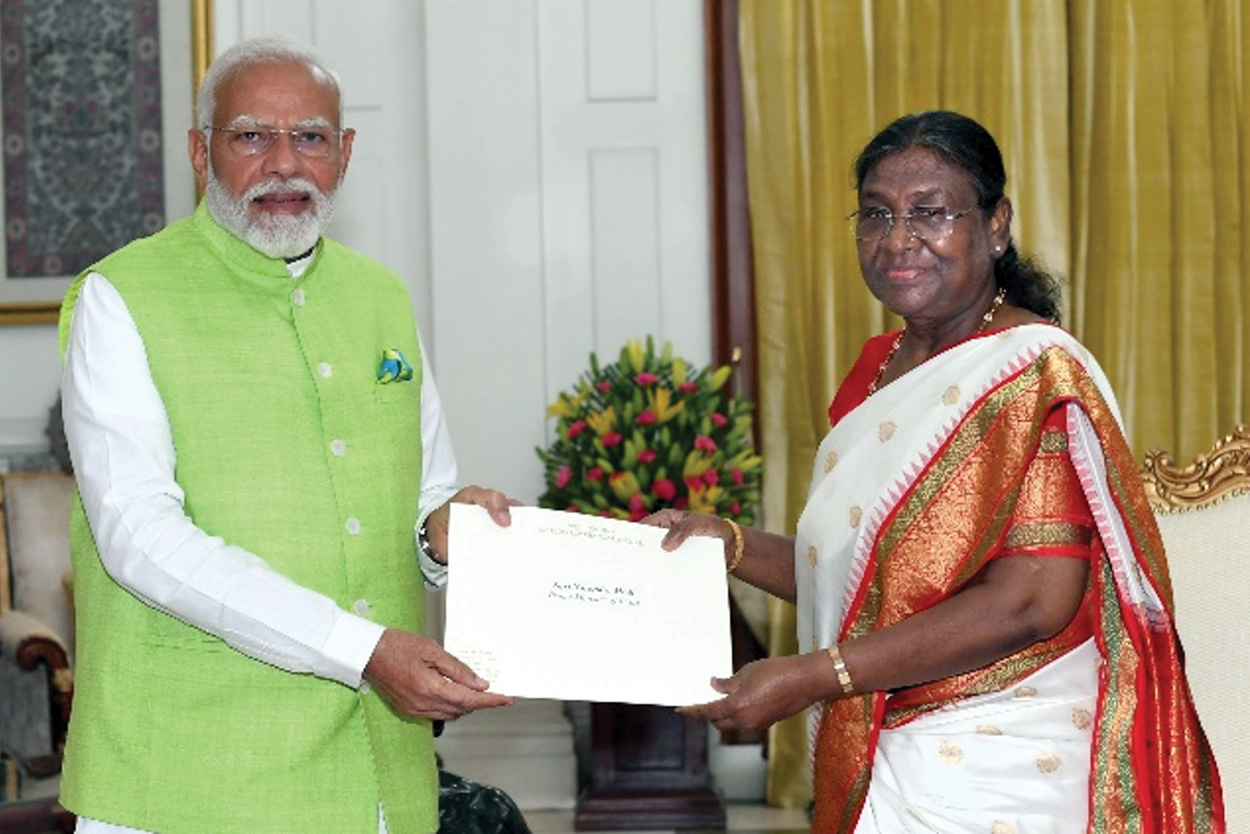Indian leader to form coalition government after BJP loses outright majority in general elections

Indian Prime Minister Narendra Modi declared a victory for his ruling alliance in the general elections as a “historical feat” while ignoring a setback for his Bharatiya Janata Party (BJP).
The BJP, which lost the outright parliamentary majority it had enjoyed during its first two terms, has agreed with its allies to form a new government. Two key allies in his National Democratic Alliance (NDA) coalition — the Telugu Desam Party, which won a landslide in the southern state of Andhra Pradesh, and the Janata Dal (United), which rules the northern state of Bihar — pledged their support.
Official results by June 5 showed the BJP on its own had secured 240 seats, short of the majority mark of 272, out of the total 543 seats in the lower house of the Indian Parliament.
The NDA led by the BJP won 294 seats, passing the majority mark in parliament, according to the Election Commission of India.
Speaking at the BJP headquarters in New Delhi late on June 4, Modi said: “In our third term, the country will write a new chapter of big decisions … This is Modi’s guarantee.”
He has taken a more positive view on X, declaring his coalition had won a third term, and saying, “This is a historical feat in India’s history.”
Modi is scheduled to be sworn in on June 8. He is now the second Indian prime minister to win a third consecutive term after Jawaharlal Nehru, the country’s first premier after independence in 1947.
Yet, the victorious fanfare could not hide the stunning blow that shattered Modi’s image of the most dominant Indian politician in decades, analysts said.
The return to federal coalitions marks a renewed emphasis on cooperative federalism, and the new government will not be able to pursue its centralist agenda of uniformity as the basis of national unity, said Balveer Arora, chairman of the Centre for Multilevel Federalism in New Delhi.
The opposition INDIA alliance, comprising the Indian National Congress (INC) and other smaller parties, clinched 233 seats, falling short of the majority mark, as confirmed by the Election Commission.
The INC, which dominated India for decades after independence but witnessed a decline in every election over the past 10 years, won 99 seats, almost doubling its tally compared to the 2019 general elections.
The decline in the seat tally for the BJP, even in its heartland bastions, shows livelihood issues, such as unemployment and inflation, overcame the appeal to nationalist Hindu identity sentiments, Arora said.
Modi has overseen India’s ascent to become one of the world’s fastest-growing economies, and its fifth largest, but the most populous country is facing a jobs acrisis.
“The underlying economic distress of people in the unorganized sector impacted the election result,” economist Arun Kumar told Agence France-Presse.
Moreover, the BJP’s oversight of regional political dynamics in candidate selection is largely responsible for its poor performance in the states of Uttar Pradesh, Rajasthan, Maharashtra and Haryana, Amit Rajendra Dholakia, a professor in the Department of Political Science at The Maharaja Sayajirao University of Baroda in India, told China Daily.
Another reason is that the BJP miscalculated the effect of two major issues: the controversial Ram temple and Modi’s personal popularity, Dholakia said. Contrary to expectations, these elements failed to sway voters, who were more focused on localized concerns.
Modi’s trump card “was his emotional pitch to the Hindus … trying to overcome the negativity around unemployment, inequality, price rises”, Kumar said. “That failed because people have reacted to their economic situation, their real issues.”
Santosh Mehrotra, a development economist, told AFP, “There is no doubt that India is seeing a job crisis at home.”
The nation needs to create 10 million to 12 million nonfarm jobs annually to absorb people entering the economy and the surplus agricultural workers, Mehrotra added.
In addition, Dholakia said the opposition mobilized itself quite well, which further eroded BJP’s electoral standing.
The INC, led by Rahul Gandhi, emphasized social welfare measures during its campaign, said Tanvir Aeijaz, an associate professor at Ramjas College, University of Delhi. Most importantly, it managed to keep a good coalition without any bickering, he added.
The writer is a freelance journalist for China Daily.


